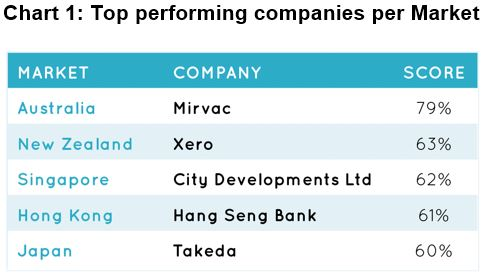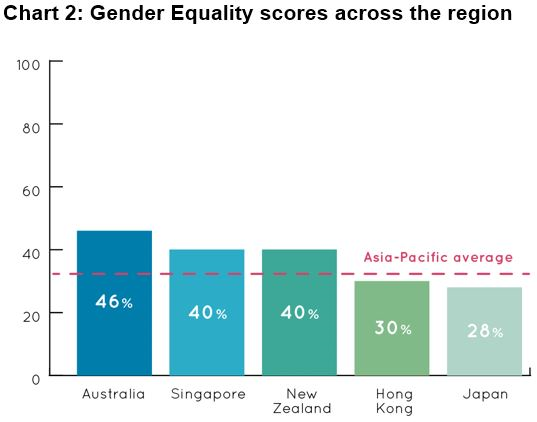*Methodology/Gender equality score
Unlike any other gender equality research, Equileap uses the world’s first in-depth cross-sector ranking system to assess and monitor thousands of companies across the globe. The APAC research covers Australia, Hong Kong, Japan, New Zealand and Singapore and included 1,181 publicly listed companies that were researched on 19 gender equality criteria, including gender balance from the board to the workforce, as well as the gender pay gap and policies relating to parental leave and sexual harassment, among other topics (Scorecard,
here). These companies represent over 23 million employees in the Asia-Pacific region. Each company has a market capitalisation of USD 2 billion or greater or is listed on a major index in one of five Asia-Pacific markets: Australia, Hong Kong, Japan, New Zealand, and Singapore. This report analyses research carried out throughout the 2021 calendar year, closed on 22 December 2021.
About Equileap
Headquartered in Amsterdam, Equileap is the leading organisation providing data and insights on gender equality in the corporate sector. Our data enables investors to enhance responsible investing with a gender lens and to focus on the social aspect of ESG policies and practices. We research and rank 4,000 public companies around the world using a unique and comprehensive Gender Equality ScorecardTM across 19 criteria, including the gender balance of the workforce, senior management and board of directors, as well as the gender pay gap and policies relating to parental leave and sexual harassment. More information at
https://equileap.com/
About the Sasakawa Peace Foundation
The Sasakawa Peace Foundation (SPF) is a Japanese foundation established in 1986 that has worked since its inception to enhance international exchange and cooperation. In 2017, SPF announced the formation of the Asia Women Impact Fund (AWIF), which aims to invest up to USD 100 million from its endowment to work towards a future where all women in Asia are empowered to reach their full potential. The fund aims to realize this vision by making investments to achieve favorable outcomes for women across Asia and to support women entrepreneurs in Southeast Asia. More information at
https://www.spf.org/en/

